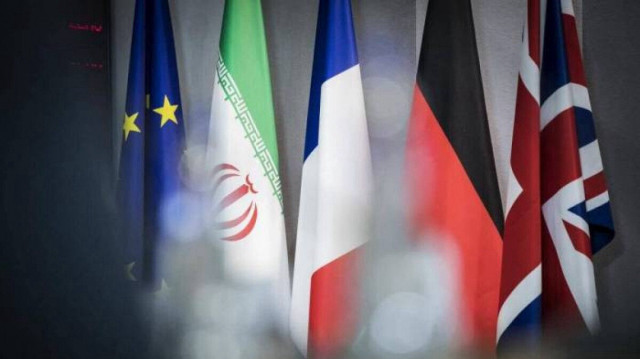

File photo
Talks come after UN nuclear watchdog adopted anti-Iran resolution and Tehran activated new centrifuges
Iran is set to hold talks on nuclear matters with the European troika — France, Germany, and the UK (E3)—on Nov. 29 amid escalating tensions over a resolution initiated by these three countries and adopted by the UN nuclear watchdog.
Iranian Foreign Ministry spokesperson Esmaeil Baghaei said on Sunday that deputy foreign ministers from the four countries will meet to discuss "bilateral, regional, and nuclear matters."
However, he did not specify the venue for the talks.
The announcement comes days after Iran activated new and advanced centrifuges in retaliation to a resolution passed by the International Atomic Energy Agency (IAEA) board of governors.
The resolution, drafted by France, Germany, and the UK and supported by the US, was adopted during the board's meeting in Vienna on Thursday.
The resolution criticized Iran for "failing to cooperate fully" with the UN nuclear agency and urged Tehran to address concerns related to uranium particles allegedly found at two of its nuclear sites.
It received 19 votes in favor, with Russia, China, and Burkina Faso opposing it, while 12 other members abstained.
In response, Iran activated a significant number of advanced centrifuges, saying the move was aimed to "protect the country's interests and further develop its peaceful nuclear industry," in accordance with its "rights and obligations under the Comprehensive Safeguards Agreement."
In his statement, Baghaei reiterated Iran's "principled policy" of "interaction and cooperation with other countries," while emphasizing that the upcoming talks are a "continuation of discussions" held on the sidelines of the recent UN General Assembly summit in New York.
He added that the new round of talks, planned during the UNGA meeting, will address "a wide range of regional and international issues, including the situations in Palestine and Lebanon, alongside nuclear matters."
Iran's newly-elected government headed by President Masoud Pezeshkian had vowed to reopen channels of communication with the West and to have sanctions eased. However, the events in Gaza and Lebanon and related developments have prevented that.
Nuclear diplomacy stalled with Iran during US President-elect Donald Trump's previous tenure, when Washington withdrew from a 2015 nuclear deal between Iran and six world powers that curbed Tehran's nuclear work in exchange for relief from international sanctions.
#IAEA
#Iran
#nuclear deal
